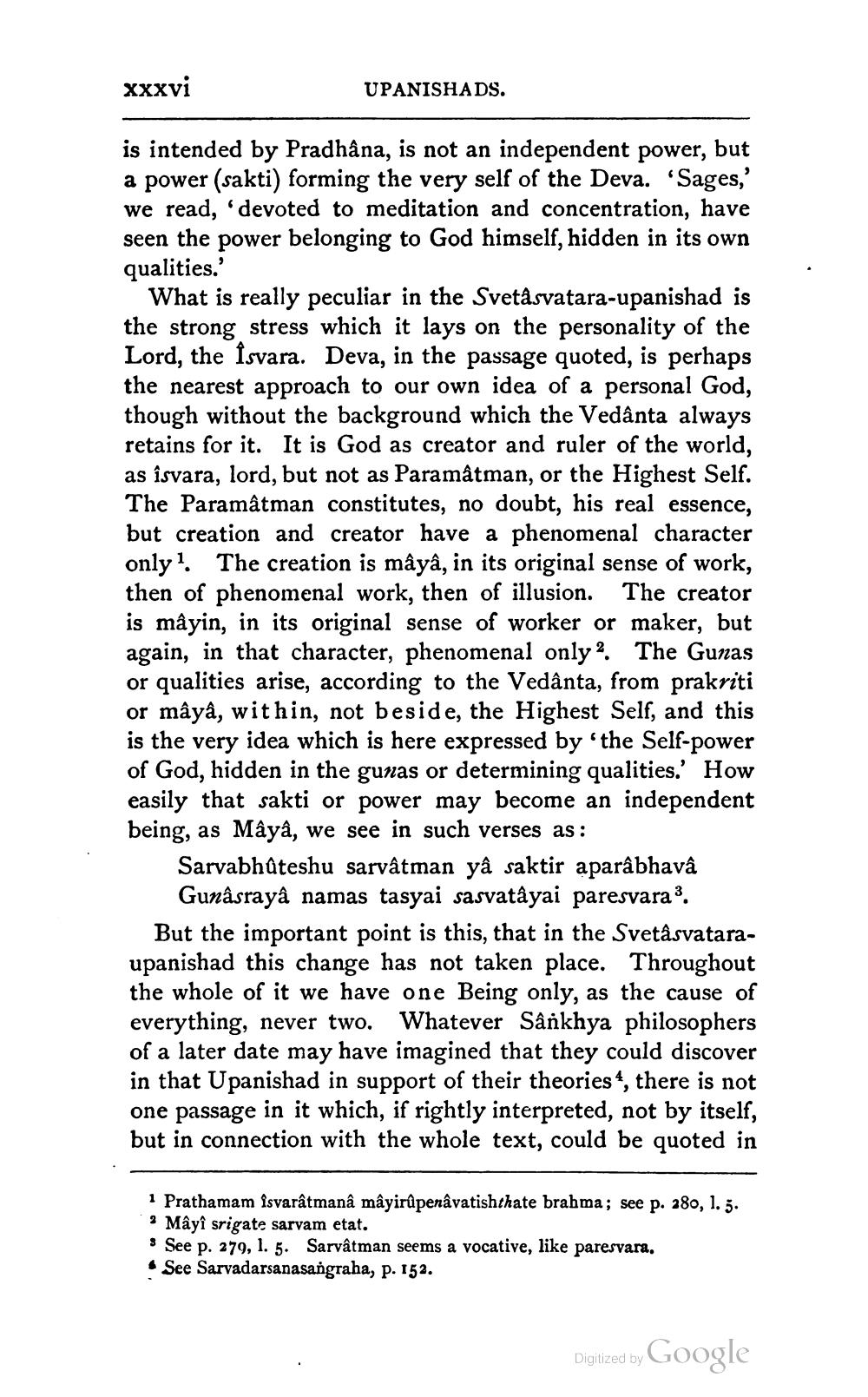________________
xxxvi
UPANISHADS.
is intended by Pradhâna, is not an independent power, but a power (sakti) forming the very self of the Deva. "Sages,' we read, devoted to meditation and concentration, have seen the power belonging to God himself, hidden in its own qualities.'
What is really peculiar in the Svetasvatara-upanishad is the strong stress which it lays on the personality of the Lord, the Isvara. Deva, in the passage quoted, is perhaps the nearest approach to our own idea of a personal God, though without the background which the Vedânta always retains for it. It is God as creator and ruler of the world, as isvara, lord, but not as Paramâtman, or the Highest Self. The Paramâtman constitutes, no doubt, his real essence, but creation and creator have a phenomenal character only 1. The creation is mâyâ, in its original sense of work, then of phenomenal work, then of illusion. The creator is mâyin, in its original sense of worker or maker, but again, in that character, phenomenal only. The Gunas or qualities arise, according to the Vedânta, from prakriti or mâyâ, within, not beside, the Highest Self, and this is the very idea which is here expressed by the Self-power of God, hidden in the gunas or determining qualities.' How easily that sakti or power may become an independent being, as Mâyâ, we see in such verses as:
Sarvabhūteshu sarvatman yâ saktir aparâbhavâ
Gunâsrayâ namas tasyai sasvatâyai paresvara:. But the important point is this, that in the Svetâsvataraupanishad this change has not taken place. Throughout the whole of it we have one Being only, as the cause of everything, never two. Whatever Sânkhya philosophers of a later date may have imagined that they could discover in that Upanishad in support of their theories 4, there is not one passage in it which, if rightly interpreted, not by itself, but in connection with the whole text, could be quoted in
1 Prathamam isvarâtmanâ mâyirûpenâvatishthate brahma; see p. 280, 1. 5. * Mâyî srigate sarvam etat.
See p. 279, 1. 5. Sarvâtman seems a vocative, like paresvara. • See Sarvadarsanasangraha, p. 152.
Digitized by Google




